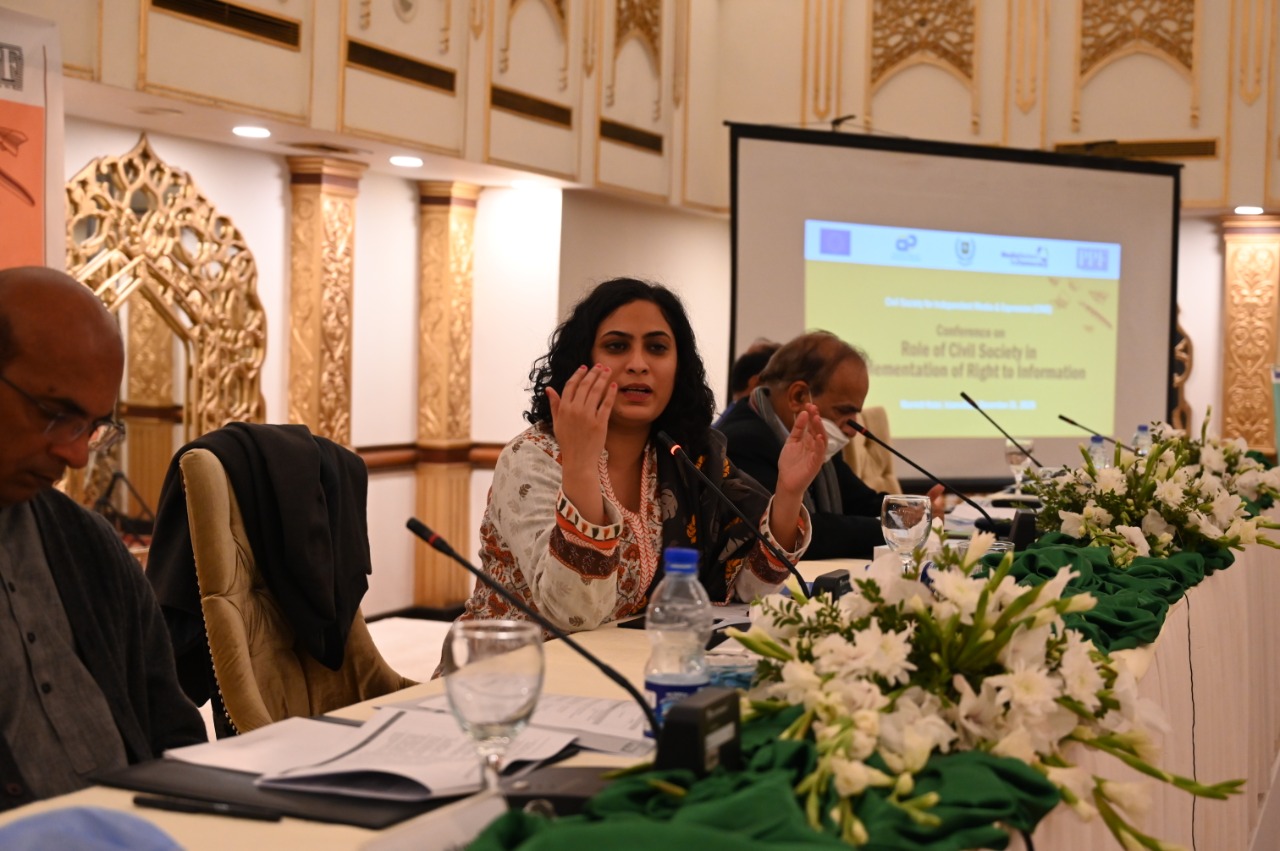Two Years of Pakistan Information Commission – Issues & Challenges
Zahid Abdullah, the Federal Information Commissioner said that during the two years of inception of Pakistan Information Commission, we faced multi-dimensional challenges with regards to the implementation of the commission orders and Right to Information law, ranging from meagre resources and unavailability of funds to the implementation of commission’s orders.


Centre for Peace and Development Initiatives (CPDI), organized a one-day conference on “Role of CSOs in the Implementation of RTI laws”. The panelists of the conference Muhammad Azam Khan Chief Information Commissioner, Pakistan Information Commission, Zahid Abdullah Information Commissioner, Pakistan information Commission, Islamabad, Mukhtar Ahmad Ali, Executive Director Centre for Peace and Development Initiatives (CPDI) and Miss. Sadaf Khan Director Programs, Media Matters for democracy (MMfD).
The commissioners shared their progress, success stories, and issues and challenges faced by Pakistan Information Commission (PIC) while implementing Federal RTI law. PIC’s Chief Information Commissioner Mr. Azam Khan stressed upon the need to ensure the implementation of RTI laws as RTI is considered as a gateway and a cornerstone of basic human rights.
It was reiterated that every citizen has the right to comprehensible, accessible, timely and reliable information especially in the prevailing pandemic situation. Moreover, Information Commissioners shed light on current issues faced by PIC like non-allocation of funds, delay in appointment of information commissioners, lack of administrative support from government, delay in finalizing the working rules and subsequent shortage of staff. Also, the resistances in disclosing information of public bodies were discussed in details.
Mukhtar Ahmad Ali, Executive Director, CPDI, highlighted the lacunae in Right of Access to Information Act 2017, and recommended corrective actions to the legislators to bring the federal RTI law at par with those prevailing in the provinces of Pakistan and also the neighboring countries like Afghanistan and India. There are hurdles in the implementation of current RTI Act which does not follow the values of good governance.
Ms. Sadaf Khan, Director Programs, MMfD, highlighted the issues faced by journalists during the COVID-19 situation for seeking information from the public bodies. She further said that during the current crisis, dissemination of reliable, authentic and accurate information is of utmost importance for the public of which journalists are the primary sources. “If journalists have no access to information, then how an ordinary citizens can have access to reliable and authentic information,” she added.
During the question answer session, the participants were enlightened with regard to the upcoming steps and initiatives of Pakistan Information Commission. Also, Information commissioners and members of CSOs pledged to continue their joint efforts for the promotion of transparent and accountable RTI regime in Pakistan with maximum public access to information.
Leave a Comment